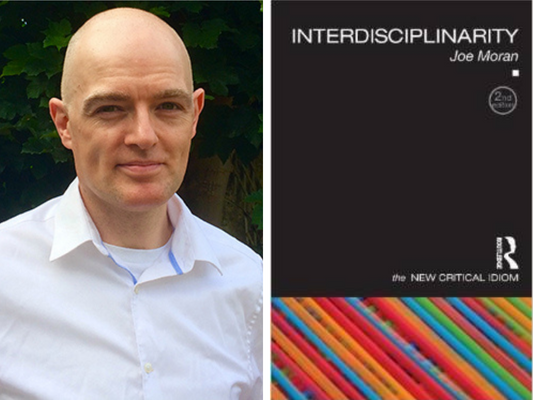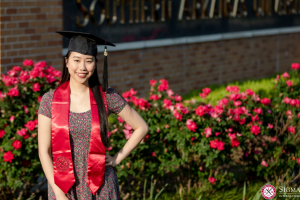As a sophomore at the University of Redlands, I was accepted into the Proudian Interdisciplinary Honors Program and was asked to challenge myself and others to change the way we learn. I was just an English Literature major at the time, and I was unsure of how this Interdisciplinary program would impact my existing interests.
I had always been fascinated by literature as it forms the basis for nearly all theoretical work across all majors. We typically do not read to learn how grammar structures our thoughts, how sound translates into characters, but how to view the complicated world around us. In this way, literature is a very “interdisciplinary” discipline. Literature, whether inside the traditional literary canon or not, can be accessed by anyone.
However, being a part of an interdisciplinary program as a Literature major was a challenge. While I love reading, I never voluntarily picked up an article on sex and gender through a biologist’s perspective or on the benefits of Ranked-Choice Voting. As the classes continued, I found myself intrigued by how much I did not know about the texts I was reading. My research topics switched from strictly textual analysis to exploring historical, religious, and political contexts and applications of certain novels. I added my Political Science double major and my Religious Studies minor in order to supplement my new projects. Finding new conversations between the literature I’ve always loved and the subjects I’ve tended to avoid has expanded my ability to research, discuss, and incorporate texts into my writing. I also became curious how a Biology major might view Victor Frankenstein’s creation, or how a mathematician might use Game Theory to predict the actions of characters in the novels I was reading. These new perspectives on traditional literary analysis were amazing, and I love incorporating them into my work.
In the Proudian program, the class read Joe Moran‘s Interdisciplinarity, which suggests that interdisciplinary work is “any form of dialogue or interaction . . . transformative in some way” between academic disciplines. Interdisciplinarity can be seen as a unique process of creation, which unites fields that are traditionally held apart.
While Creative Writing and English Literature are similar, there are efforts to clarify the boundaries between these fields. September Dancel, an English Literature major and Creative Writing minor and Sigma Tau Delta member at the University of Redlands, found that her experience of joining the Proudian program has led to creative interactions between her two disciplines. She had always “naturally gravitated toward [English Literature],” but the interdisciplinary program gave her a reason to branch out and experience “in-depth” learning outside of literature. After finding academic writing somewhat tedious, Creative Writing allowed September to freely “read and write for different reasons—for the story.” She finds the interaction between her major and her minor to be “interdisciplinary as all disciplines come from one another and can be used to complete each other.” Her future interdisciplinary projects will likely be centered on documenting her experience as an nontraditional college student and continuing her willingness to read new things.
Olivia Umstead, an English Literature and Creative Writing double-major with a Political Science minor and President of the Upsilon Alpha Chapter at the University of Redlands, has also enjoyed the interdisciplinary nature of literature. She shared that the skills she developed in her literature courses, “critical thinking . . . and digging deep into texts to carve out meaning,” have been transferable and valuable in her Creative Writing and Political Science courses. She says, “humanities classes often overlap, but I’ve found that especially with literature, because it is so wide-reaching and . . . can be applied to various aspects of school, work, and life, that studying it often leads to success and strength in a broad variety of other classes.” Her interdisciplinary work has included a paper on “the Mormon culture’s near-worship of Jane Austen,” showcasing how the impact of literature can extend far beyond the page.
To many Literature majors and Sigma Tau Delta members, creating works that transform our understanding of texts and link together all the written elements of life is a large part of our training. With the invention of e-books, embedded hyperlinks, and interactive reading technologies, literature is increasingly becoming interdisciplinary—whether we recognize it as so or not. Technology might profoundly change how we examine literature, and having an interdisciplinary awareness and a willingness to engage in creative and collaborative works might be key to keeping our research fresh and exciting. Interdisciplinary work may offer all writers and readers a new way to engage with their education as it has to us at the University of Redlands.
 Alessandra Young
Alessandra Young
Student Representative, Far Western Region, 2021-2022
Upsilon Alpha Chapter
University of Redlands, Redlands, CA
Sigma Tau Delta
Sigma Tau Delta, International English Honor Society, was founded in 1924 at Dakota Wesleyan University. The Society strives to
- Confer distinction for high achievement in English language and literature in undergraduate, graduate, and professional studies;
- Provide, through its local chapters, cultural stimulation on college campuses and promote interest in literature and the English language in surrounding communities;
- Foster all aspects of the discipline of English, including literature, language, and writing;
- Promote exemplary character and good fellowship among its members;
- Exhibit high standards of academic excellence; and
- Serve society by fostering literacy.
With over 900 active chapters located in the United States and abroad, there are more than 1,000 Faculty Advisors, and approximately 9,000 members inducted annually.
Sigma Tau Delta also recognizes the accomplishments of professional writers who have contributed to the fields of language and literature.







Add Comment